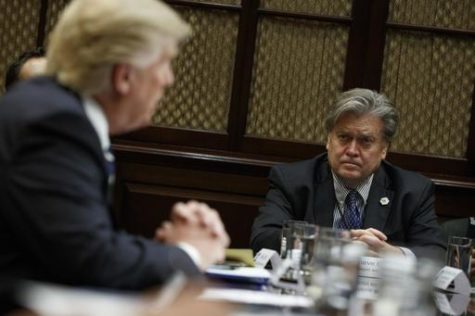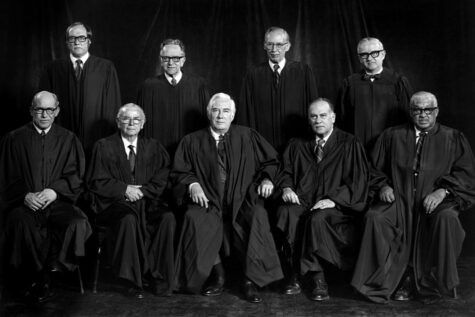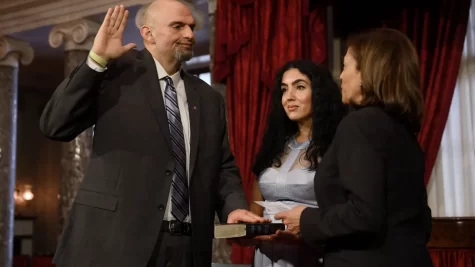Trump Appoints Bannon to National Security Council
February 27, 2017
In the first few weeks of his presidency, Donald Trump has already made large changes to the White House team. In an order signed on Saturday, January 28, Trump assigned Steve Bannon a spot on the “principals committee” of the National Security Council (NSC).

Trump also downgraded roles of the joint chiefs of staff and the Director of National Intelligence, who had previously attended all NSC briefings. They will now only be permitted to attend discussions that pertain to their areas.
Bannon has served as Trump’s assistant and chief strategist throughout his campaign trail and now his presidency. From now on, Bannon will be present for discussions concerning decisions for national security.
The assignment of Bannon to the NSC is an unprecedented move. NPR correspondent Merrit Kennedy notes that neither David Axelrod, President Obama’s chief strategist, nor Karl Rove, President George W. Bush’s top political advisor, ever served on the National Security Council.
Additionally, positions on the National Security Council have typically gone to generals or other military personnel. In fact, President Bush’s chief of staff Josh Bolten said at a conference last fall that Bush specifically barred Rove from attending NSC meetings because, “…the signal he especially wanted to send to the military is that the decisions I’m making that involve life and death for the people in uniform will not be tainted by any political decisions.”
Many political analysts, both democrat and republican, are alarmed by Bannon’s new position. Susan Rice, who served as President Obama’s national security advisor, called Trump’s decision to put Bannon on his Security Council “stone-cold crazy.” Much of the concern stems from the the level of influence that Bannon now has over President Trump’s decisions. Time Magazine even went as far as to ask, “Is Steve Bannon the Second Most Powerful Man in the World?”

Within the first few weeks of the Trump Presidency, Bannon’s influence has already seeped into new policies and executive orders. Bannon has been outspoken about his opposition to the rise of Islamic extremism, which he believe is threatening western values. Many believe that Bannon was the driving force behind Trump’s executive order to place a travel ban on refugees from seven Muslim-majority nations.
Bannon’s background does not do to much to negate allegations of racism, sexism, and anti-semitism. From 2012 to 2016, Bannon served as executive chair of Breitbart News, a far-right news, opinion, and commentary site. Breitbart News has served as the the mouthpiece for the alt-right movement, and is often in hot water for their sensationalist and widely offensive headlines such as “Billy Kristol, Republican Spoiler, Renegade Jew” and “There’s No Hiring Bias Against Women in Tech, They Just Suck at Interviews..”
However, in an interview with Fox News, the president of the Zionist Organization of America Morton Klein defended Bannon, saying that Bannon is the “opposite of an antisemite.” Klein notes that Breitbart news has both Jews and homosexuals on the staff and has posted pro-Israel content.


